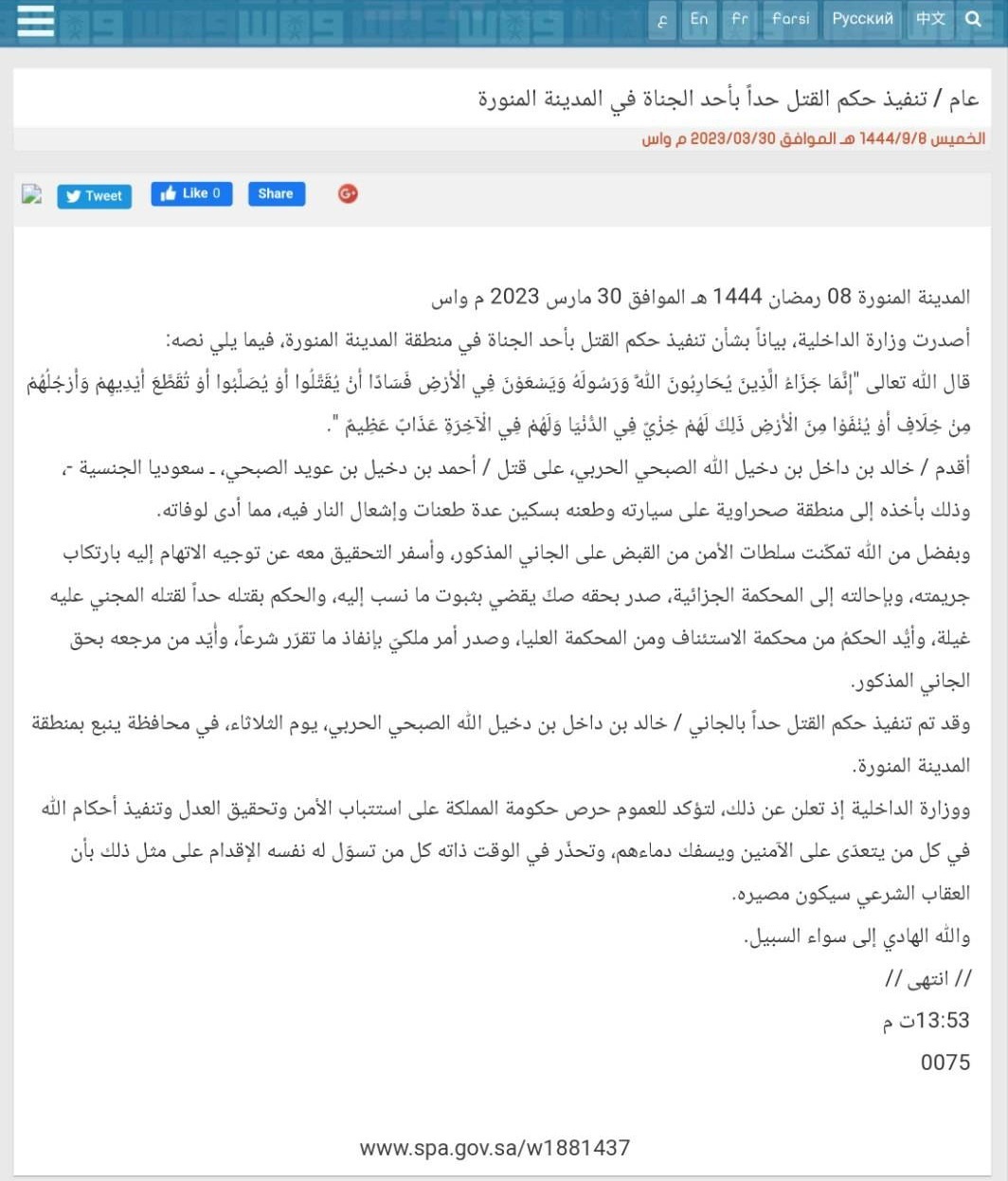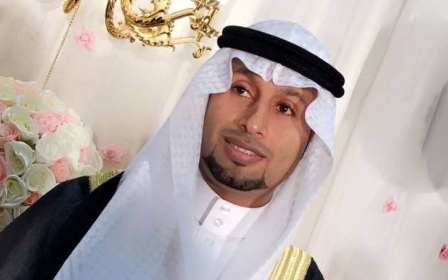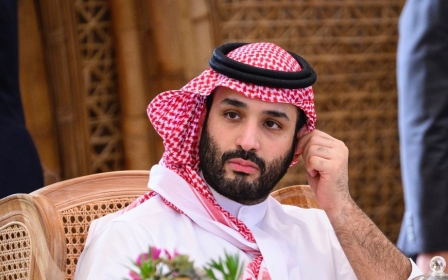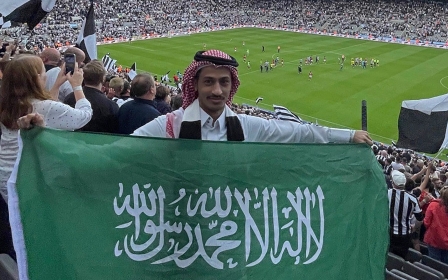Saudi Arabia: Official news agency story edits date of execution to before Ramadan
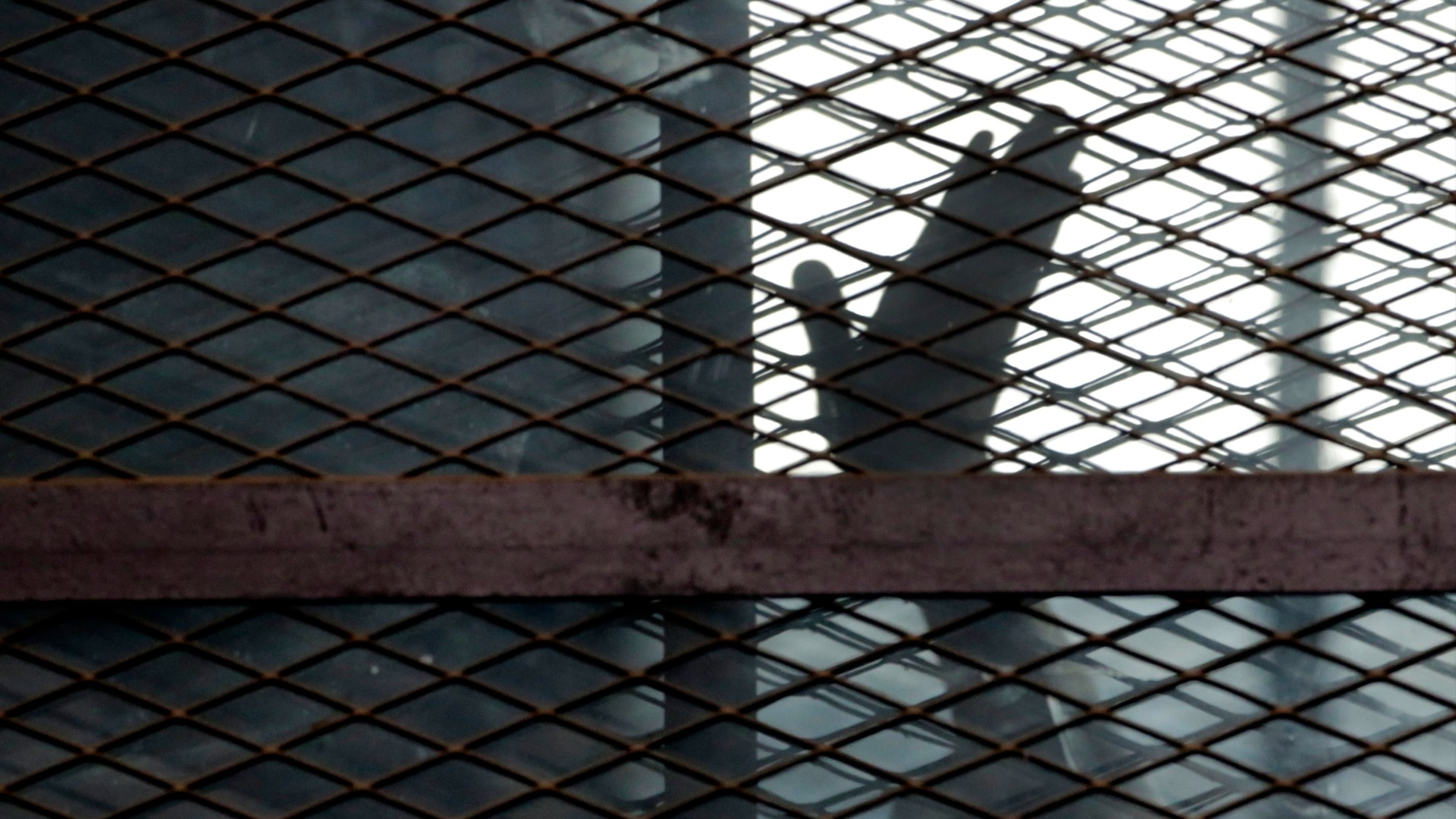
Saudi Arabia’s official news agency appears to have changed an announcement about a controversial Ramadan execution to suggest it took place before the start of the holy month.
On 30 March, the Saudi Press Agency (SPA) reported that Khaled al-Harbi, a Saudi man convicted of murder, had been executed in Medina “on Tuesday”.
The announcement garnered international headlines, with one rights group saying that Harbi’s execution was the first to occur during the Muslim holy month since 2009, if not the first time ever.
SPA announcements are often the only official information released about executions in Saudi Arabia and are typically made one or two days after an execution. Harbi was therefore presumed to have been executed on Tuesday 28 March.
But the SPA announcement now reports that Harbi was executed “on Tuesday, Shaaban 29 1444 AH”, the Islamic calendar date for 21 March, and the day before Ramadan began.
New MEE newsletter: Jerusalem Dispatch
Sign up to get the latest insights and analysis on Israel-Palestine, alongside Turkey Unpacked and other MEE newsletters
Rights groups say the changes were made to defuse criticism over the execution during the holy month, an act they say is only the latest warning sign for those monitoring the kingdom’s death row.
“Saudi Arabia for years now has been trying to polish its image on the international stage,” said Taha al-Hajji, a Saudi capital defence lawyer and legal consultant with the European-Saudi Organisation for Human Rights (ESOHR).
“They changed the statement because it will harm the image that Saudi tries to project as a country of reform and moving forward.”
Jeed Basyouni, who leads the work in Middle East and North Africa for Reprieve, said the change was the latest attempt by Saudi authorities to mislead the international community about their use of the death penalty.
"This hasty website editing just looks like a clumsy attempt to cover that up," Basyouni told MEE
"We've seen this time and again, with the regime continuing to execute child defendants and for alleged drug offences, despite claims they have abolished the use of the death penalty in such cases."
Middle East Eye has asked the Saudi foreign ministry for comment.
'Anything could happen'
In Saudi Arabia, the month of Ramadan, which celebrates peace and mercy, has traditionally been a time when authorities pause executions.
Hajji said he and families who have relatives on death row in Saudi Arabia were floored when they saw the SPA’s announcement about Harbi's execution.
“Everyone was shocked,” he said. “These families consider the month of Ramadan as a period where they can catch their breath and be less anxious that an execution will be carried out against their loved one.”
But he also said this isn’t the first time in recent years that authorities in Saudi Arabia have broken with either tradition or their own public assertions when it comes to executions.
In April 2020, he noted, the Saudi Human Rights Commission announced that King Salman decreed a law saying that death row prisoners who committed crimes as minors would no longer face execution and would instead serve prison terms.
But in June 2021, Mustafa al-Darwish, who was convicted of protest-related offences, many of which occurred when he was 17, was executed.
The commission also said in a January 2021 tweet, which has been deleted, that there was now a moratorium on executions for drug offences.
But last November, 20 people, including 12 foreigners, were executed in quick succession over drugs charges. Last month, Hussein Abo al-Kheir, a Jordanian who said he had been tortured into signing a false confession over drug-related offences, was also executed.
“The Saudi government has broken all restrictions and trespassed all of the red lines in this regard,” said Hajji. “Now activists are checking [SPA] every day to see if there is a new update. Anything could happen.”
Middle East Eye delivers independent and unrivalled coverage and analysis of the Middle East, North Africa and beyond. To learn more about republishing this content and the associated fees, please fill out this form. More about MEE can be found here.


